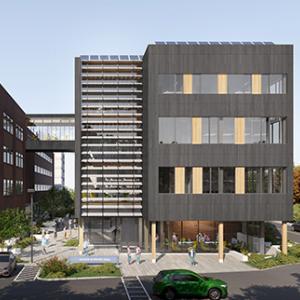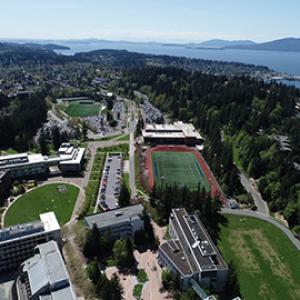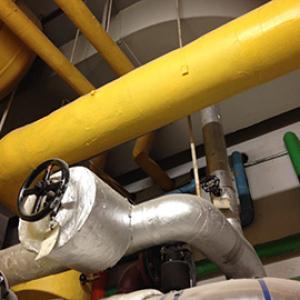FDO home
Welcome to the new FDO website
Our new site covers services from Facilities Management, Capital Planning & Development, and Central Services, which have now combined into Facilities Development & Operations.
You can make a maintenance request, learn about ongoing projects and construction impacts, report a problem in a building or on the grounds, ask for help designing a new space or developing a capital project, arrange an office or departmental move, or download a floor plan.
We're your one-stop shop for all facilities, space planning, capital budget, grounds, and moving needs. Just let us know how we can help.
For fastest service on maintenance and repair requests, please email or text fixit@wwu.edu or phone our customer service center at (360) 650-3420 to report maintenance or repair needs. Our staff will ensure your request is routed quickly to the correct technicians.
Old Main Maple Reaches End of Life
April 1st, Western’s arborist, Keith Doran, discovered extensive rot in one of the Norway Maples in front of Old Main. Although the decision to remove a tree is always difficult, this tree has reached the end of its natural life and must be removed for the safety of the community.
The area surrounding the tree was cordoned off when the rot was discovered, and a team from Facilities Development and Operations removed the tree April 2nd.
Western’s gardeners plan to plant a new Norway Maple on Old Main lawn within the next few months, as soon as one can be found and brought to campus. And to honor the legacy of a tree that has touched so many over the years, intact wood will be saved for use in future projects around campus.
Tree inspection is an ongoing process and will include thorough assessment of all trees on the Old Main lawn in the next few days.
Services
Construction Alerts
Parks Hall - Patch and paint common areas
Arntzen Hall - Patch and paint common areas
Kaiser Borsari Hall
Construction has begun on Kaiser Borsari Hall, Western’s new electrical engineering and computer science building. See link above for details and updates.
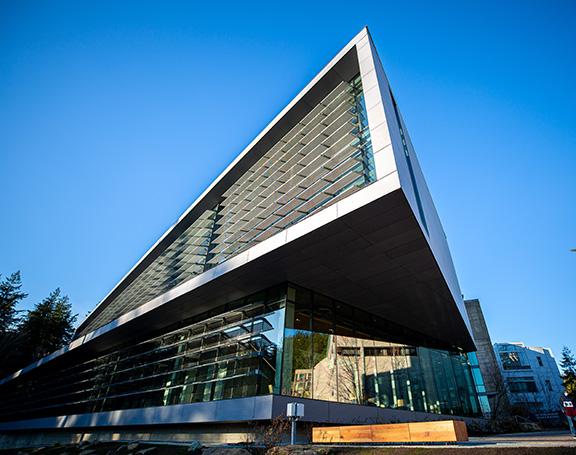
Interdisciplinary Science Building Awarded LEED Gold Certification
Western’s Interdisciplinary Science Building (ISB), which opened for instructional use in the Spring Quarter of 2022, has just been awarded LEED (Leadership in Energy and Environmental Design) Gold Certification.
The building earned points toward certification in a variety of categories, including sustainable sites, optimized energy performance, indoor environmental quality, material and resources use, and innovation.
The LEED rating system was created by the US Green Building Council and has become an industry standard for green building certification. LEED assessments consider the building holistically, awarding credits for achievements relating to climate change, human health, water resources, biodiversity, the green economy, and community and natural resources.
Site sustainability is supported through initial site assessment, protecting or restoring habitat, maintaining open space, managing rainwater, and reducing light pollution with dark night and low footcandle lighting. Indoor environmental quality improvements include low emitting materials, indoor air quality enhancements, assessment, and management plan, and the inclusion of natural light and quality views.
Innovations include use of all LED lighting fixtures, participation in green building education, establishing LEED standards for operation and maintenance, providing all-gender restrooms, and procurement of low carbon construction materials.
The ISB adds essential teaching labs and active learning classrooms to meet the growing need for STEM degree programs. The building features teaching labs for Biology, Chemistry, Environmental Science, and Marine and Coastal Science, along with flex lab spaces and active learning classrooms.
Capital Development & Strategic Vision Plan
The Capital Development and Strategic Vision Plan will establish a campus vision for the next 10-15 years and guide ongoing decision making around capital planning and development, campus open space, and infrastructure in a manner that aligns with the values, goals, and strategic vision of Western Washington University. The completed Capital Development & Strategic Vision Plan will guide how we improve and modernize our physical spaces on campus and will serve as a basis for updating the Institutional Master Plan, done in partnership with the City of Bellingham and other community groups. The current 10-year capital plan anticipates that much of the development will be focused on renovation and modernization.
The Plan will assess programmatic space and facility needs across campus, study existing facilities for their suitability to meet these needs and aim to establish a sequence for the next several biennia of projects, including strategies for developing swing space to allow for the likely relocation, whether temporary or permanent, of programs currently housed in each of those buildings.
For more information about the scoping and planning process, please visit the Capital Development & Strategic Vision Plan web page.
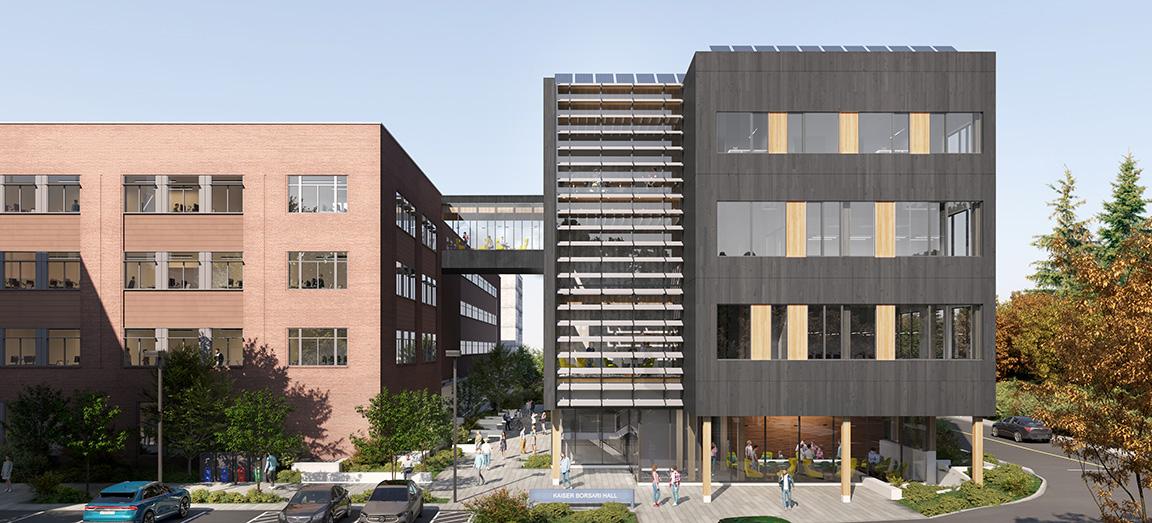
Kaiser Borsari Hall Wins Holcim Bronze Award
At a ceremony in Venice, Italy, on November 18, 2023, the Holcim Foundation for Sustainable Construction awarded Western Washington University’s Kaiser Borsari Hall project and the design team at Perkins&Will a “Bronze Award” for the North American region, one of only two projects in the United States and the only university building globally to win a Holcim Award this year. The Holcim Awards recognize “diverse and innovative real-world approaches to creating a more sustainable built environment.”
“We are honored by this international recognition for Kaiser Borsari Hall and are so grateful to our partners at Perkins&Will and Mortenson for their excellent work bringing the vision to life,” said Joyce Lopes, Vice President for Business and Financial Affairs. “We are strongly committed to reducing our carbon footprint at Western and hope that Kaiser Borsari Hall can serve as inspiration and prototype for more sustainable buildings on university campuses across the country.”
Kaiser Borsari Hall is designed to meet the International Living Future Institute’s “smart building” standards, the first university STEM building in the United State to track zero energy and zero carbon certification through the institute. It will achieve a 63% reduction in embodied carbon over conventional construction methods and a 100% reduction in operational carbon, using a mass timber structure and rooftop solar panels for on-site energy generation. The Holcim Awards 2023 Jury for North America noted, “The project considers functionality and sustainability, and successfully pushes boundaries for the integration of engineering systems and energy storage.”
The location of the site adjacent to the Sehome Arboretum allows the use of native and climate-adaptive plants to form a habitat bridge between the arboretum and the campus core. The landscaping will also help reduce stormwater runoff and outdoor water use.
Kaiser Borsari Hall will house electrical and computer engineering, energy science, including the nation’s only undergraduate program in energy studies, and computer science. Its high-performance design will serve as a living laboratory for cross-disciplinary collaboration and hands-on learning. Construction is scheduled for completion in early 2025.
Dark Skies Lighting Comes to Western
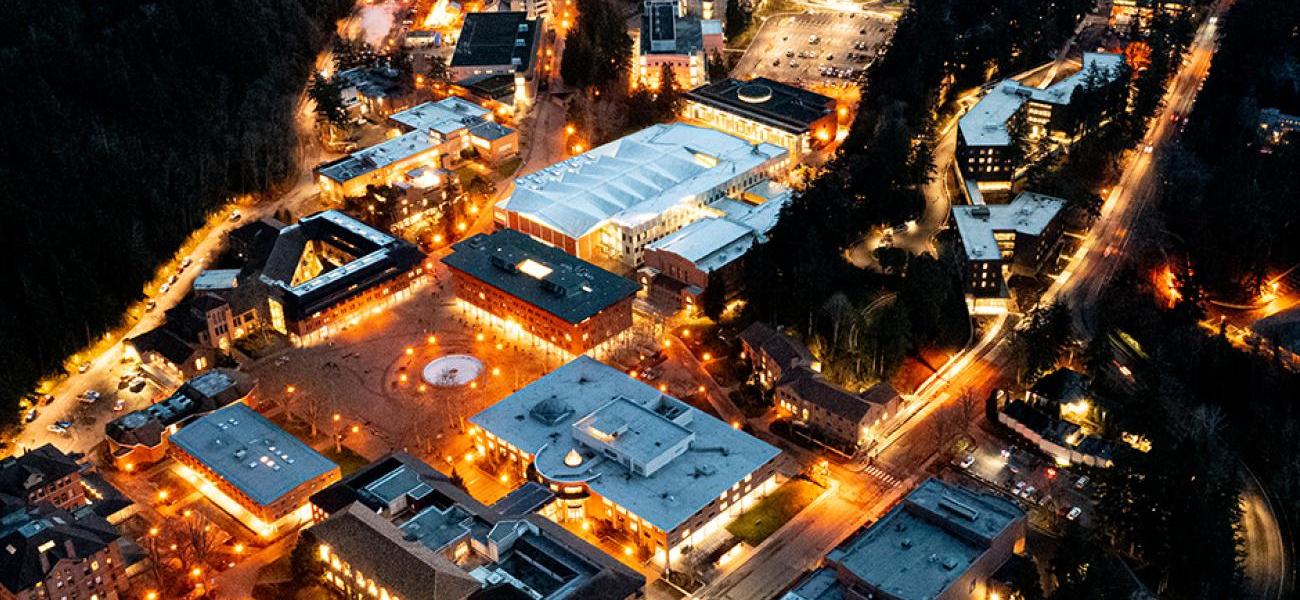
For the millions of birds that travel at night, sometimes the darkest path is the most inviting.
Along the periphery of campus, Western has replaced more than 200 light fixtures to comply with standards set out by the International Dark Sky Association to reduce the impact of artificial light at night on migratory animals and to save energy.
Seventy percent of North American birds migrate, and 80 percent of those fly at night, often navigating by the moon and stars. But artificial light can disorient birds, causing them to stray from their routes, circle light sources, and crash into buildings, resulting in millions of bird fatalities every year.
Improvements in LED technology have allowed the development of lights in a warm color range, below 3000 Kelvins, that interferes less with birds’ nighttime navigation, but still allows people to perceive color. They’re also designed to limit upward-directed light, reducing the night glow of cities. Another bonus: The lights reduce nighttime exposure to blue light, which can harm humans and wildlife alike.
So far, Western has replaced a total of 226 campus light fixtures for an estimated energy savings of 67,481 kilowatt hours each year. That keeps almost 48 tons of carbon dioxide out of the atmosphere —roughly the annual greenhouse gas output of 10 gasoline-powered passenger cars. While Western’s electricity is supplied by renewable sources through Puget Sound Energy’s Green Direct program, this project will reduce demand on the local grid and lower carbon emissions.
Good for the birds, good for all of us.

